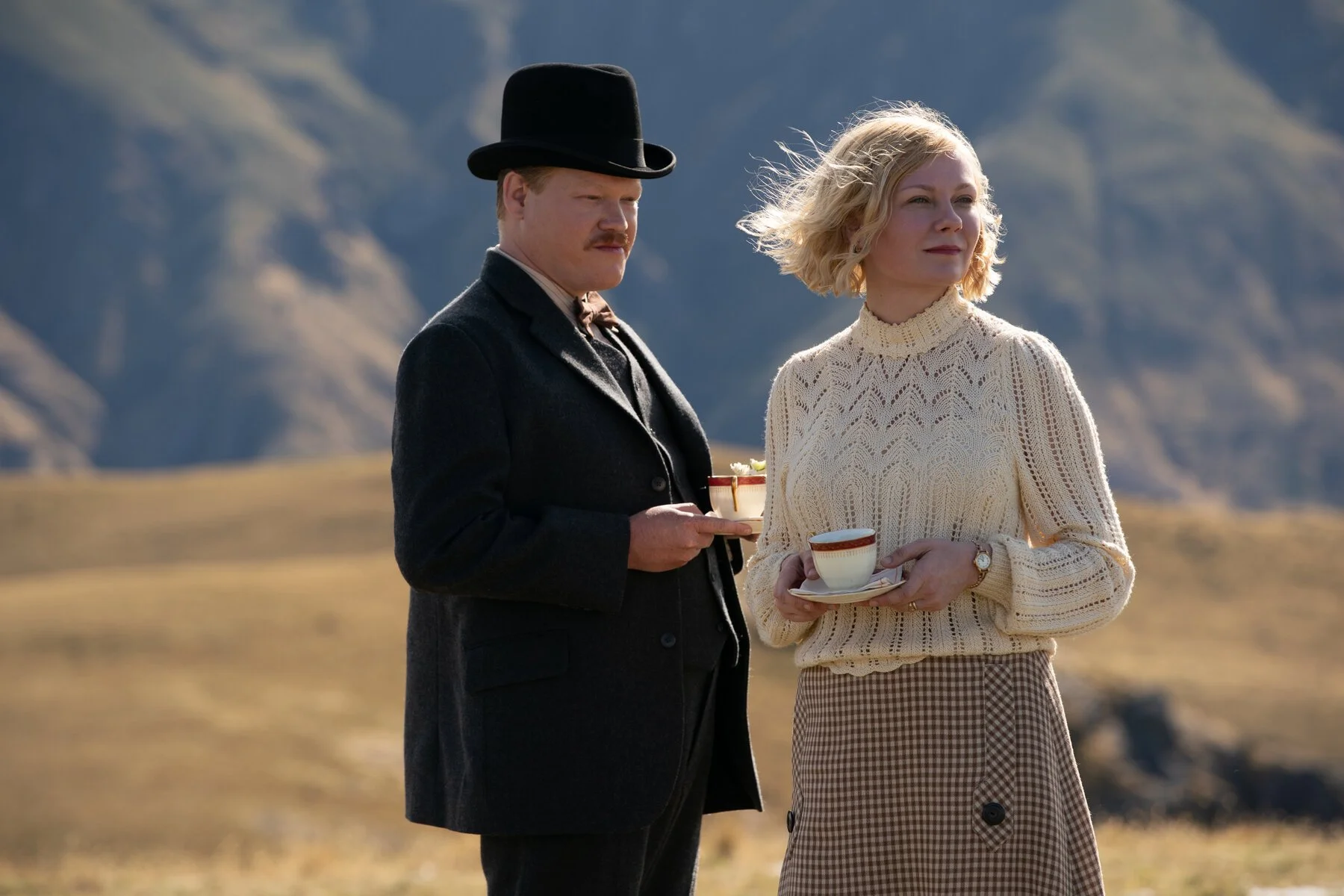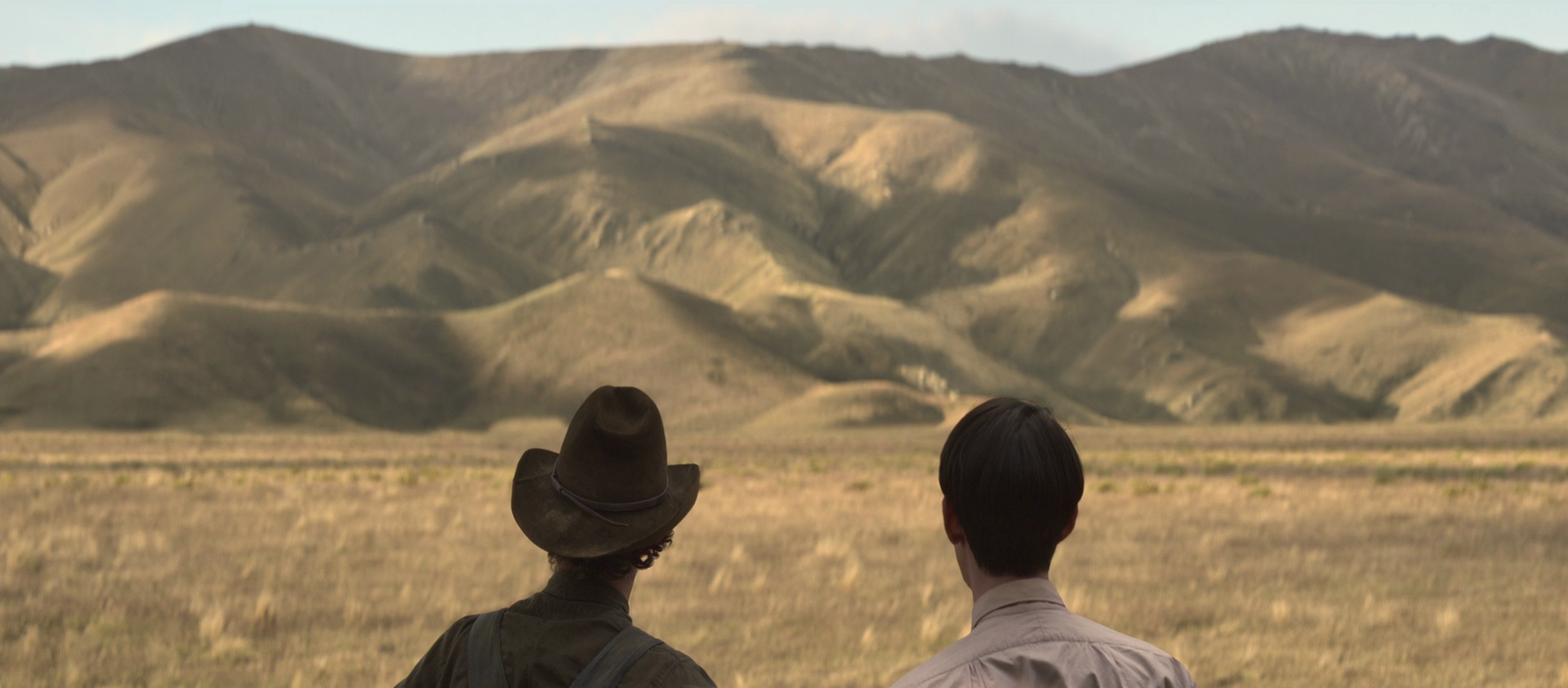The Power of the Dog and Psalm 22
Psalm 22
Psalm 22 is one of the Psalms that Jesus recites while on the cross, leading some to believe he was meditating on the entirely of much of the Psalter while enduring the worst physical and spiritual pain that any human has ever endured. On the cross, he was utterly forsaken by not only his friends, disciples, and fellow Jews, but also by his Father, God himself. The first two verses of the Psalm, King David writes, "My God, my God, why have you forsaken me? Why are you so far from saving me, so far from my cries of anguish? My God, I cry out by day, but you do not answer, by night, but I find no rest." David feels completely alone in his life and pursuit of righteousness as he's pursued by those who wish him only death and evil, which David calls "dogs." Later in the Psalm, David recites, "But you, Lord, do not be far from me. You are my strength; come quickly to help me. Deliver me from the sword, my precious life from the power of the dogs. Rescue me from the mouth of the lions; save me from the horns of the wild oxen." The film that may very well win Best Picture (it's nominated for more Oscars than any other film this year) derives its title from that very passage from David in Psalm 22. David is alone and the power of someone who is against him overwhelms him and drives him to fall on his knees before God, begging for help and salvation. The power of the proverbial dog is the powers of evil and violence that seem to constantly haunt and stalk us. All humans can identify with this, but the film zeros in on toxic masculinity in 1920s Montana.
‘The Power of the Dog’ Elevator Pitch
Brothers Phil and George Burbank (played by Benedict Cumberbatch and Jesse Plemons respectively) own a ranch together after growing up with their friend and mentor, "Bronco Henry." The two brothers contrast one another in style and charisma, as Phil is a violent and outspoken cowboy who refuses to wash up for dinner and embodies a rugged masculinity, while George is mild-mannered and gentle. After George marries Rose Gordon (Kirsten Dunst) and takes in her son Peter (Kodi Smit-McPhee) to their home, Phil is hellbent on terrorizing the two psychologically.
‘The Power of the Dog’ Reveal
To speak and write about The Power of the Dog is nearly impossible without delving into its twisty third act. Peter stumbles upon Phil's secret hideout and discovers Phil is a closeted homosexual man. Peter puts two and two together, coming to the conclusion that Bronco Henry not only taught Phil how to ranch and be a cowboy, but he was his lover and life partner. When Phil sees a romantic spark in Peter (Peter wears his sexuality on his skin, while Phil hides his), Peter uses the opportunity to lure and seduce Phil to his own death, rather than a love affair. Writer-director Jane Campion telegraphs this with the opening voiceover to the film. Peter's voice says, "When my father passed, I wanted nothing more than my mother's happiness. For what kind of man would I be if I did not help my mother? If I did not save her?" By the third act, Phil's terror has driven Rose to alcoholism and depression, with her life spiraling out of control. Peter uses his knowledge of Phil to end his mother's suffering. For Peter, that is what it means to be a man—to love and protect the vulnerable. For Phil, being a man is being a hyper-masculine type, like the cowboys portrayed by John Wayne or Clint Eastwood.
The Power of the Dog
But back to the titular Scripture passage. What is the dog and what is its power in the context of this story? Throughout the film, Phil stares out to the Montana mountains (ahem... New Zealand!) and sees a hidden object in the lines and crevices of the range. Only he and Bronco Henry were able to see the object until Peter without hesitation identifies it as a barking dog. Phil's astonishment is not only a recognition of Peter's intelligence but a recognition of a desire within Phil to recapture his love with Bronco Henry in this teenage boy. One can surmise from context clues that Phil also recognizes himself in Peter, meaning Phil was groomed by an older Bronco Henry when he himself was an underage boy.
Hurt people hurt people. This is a well-known principle and phrase that captures the essence of the film. The power of the dog is the power of the cycle of violence and abuse that is passed down. Perhaps Bronco Henry was groomed and abused by someone older as well. Peter's intelligence and grasp of masculinity allow him to break the cycle of violence by standing up for his mother. The power of the dog is the power of sin that seeps so deeply into our hearts and souls that we bring others into our own brokenness. Jesus himself thought of this very phrase as he hung on the cross, sacrificing himself not only for the Rose Gordons and Peters but even for the Phil Burbanks and the Bronco Henrys of the world.


